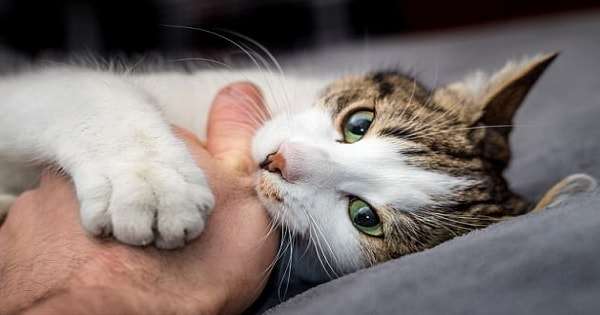Our cats often have a funny way of showing their affection, however, domestic cats may owe their love of curling up on human laps to the ancient Egyptians.
A brand new genetic study on feline remains dating back 9,000 years has revealed a lineage of cats from Egypt started spreading around the world around 3,000 years ago.
These creatures actually interbred with local animals and left distinct DNA that persist in our pets to this day.
The scientists who are behind this new research believe the Egyptian cats were so successful because they had developed various traits that made them better ‘companions’ than other types of wildcat.
They go on to say that ancient Egyptians and those trading with them may have transported these cats in ships to far off ports, which allowed the animals to pass on genes that made their descendants friendlier to humans.
Unlike dogs, which were domesticated about 14,600 years ago, cat were domesticated relatively late.
Cat remains have actually been found buried alongside human remains in Cyprus from 7,500BC, which suggests they were already being tamed by early neolithic farmers.
It is currently thought wildcats initially began living alongside humans to take advantage of the rodents which were attracted to early Stone Age farms and were tamed by humans who would leave food for them.
Dr Eva-Maria Geigl, who is a molecular anthropologist at the Jacques Monod Institute in Paris and research director at the French National Research Centre CNRS, stated: ‘The peculiar social and cultural context of the Egyptian society may have facilitated the evolution of a more ‘friendly’ disposition of cats towards humans’.
‘Their popularity as a companion animal, together with its role as pest control agent on ships, might have determined the success of the Egyptian cat in spreading along trade routes.’
The research, which has been published in the journal Nature Ecology and Evolution, gives the very first detailed look at the genetics underlying early cat domestication.
h/t: www.dailymail.co.uk













